What are Seasonal Keywords? Why are they Important in your SEO strategy?
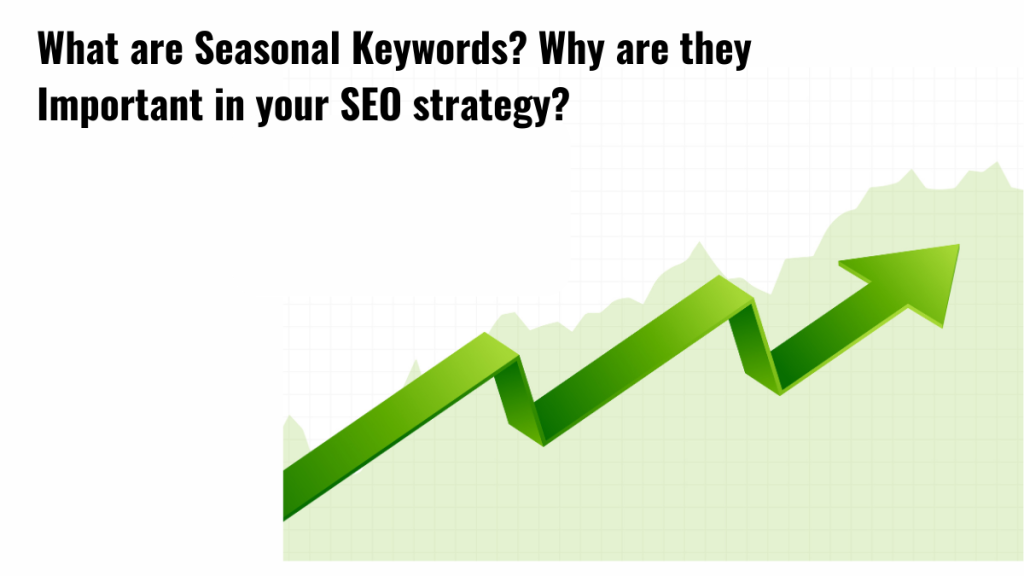
Planning and executing the right SEO strategy is very important for your business. Having a deep understanding of Keyword seasonality is essential for building a winning SEO strategy in different seasons. The right seasonal SEO strategy will help you to gain more visibility and users for your business with specific search intent.
What are Seasonal keywords?
Seasonal Keywords are keywords people search for most at certain times of the year. They have a big spike in search volume at particular times such as Summer, Winter, festival seasons, etc.
Many people search for “Christmas decoration “in December more than any other month in a year. This makes seasonal keywords unique because there are specific weeks or months during the year in which people search for them. This type of keyword trends are called ‘keyword seasonality’.
- Why are seasonal keywords important in your SEO Strategy?
- Understanding Seasonal Keywords
- How to select the best keywords ?
- Search Volume vs. Buyer Intent
- How we can create an Effective Content Strategy for your Seasonal Keywords
Why are seasonal keywords important in your SEO Strategy?
Including seasonal keywords in SEO strategy are important for understanding what people are searching for in that time period. Also help to get an idea of keyword trends during that time period. By analyzing those keyword trends we can plan and strategies the SEO campaign effectively with different steps. This strategic approach will help to rank at the right times of year, you can also ensure your website has visibility during that time.
When it comes to creating content, we need to identify the keyword trend using previous year data. Based on that we can start creating content focusing on long tail keywords.
Understanding Seasonal Keywords
Before diving into the strategies for leveraging seasonal keywords, it’s crucial to understand their nature. Seasonal keywords are those that experience fluctuations in search volume. That is often driven by external factors like holidays, weather changes etc. We need to identify the right keywords for your niche and align your content and SEO efforts accordingly.
Understanding the difference between trending, seasonality, and seasonal fluctuations in keyword demand is important for your SEO plan.
Trending Keywords
These keywords experience sudden, short-term spikes in search volume due to current events, viral trends, or news.
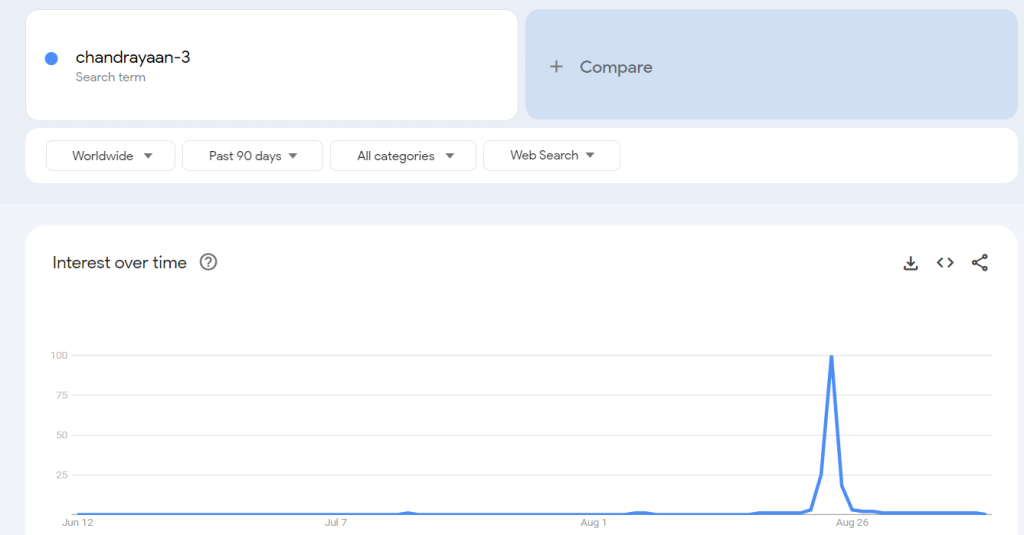
Trending keyword data from Google Trends
Keyword Seasonality
As mentioned earlier, seasonal keywords follow a predictable pattern of fluctuations throughout the year. They are linked to ongoing events or seasonal changes.
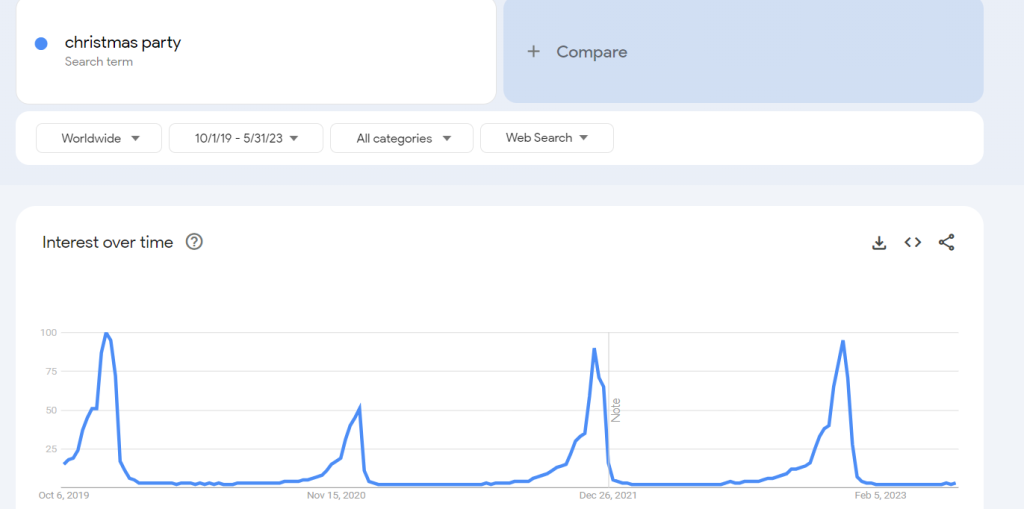
Keyword seasonality data from Google Trends
Learn more about “The different types of keywords”.
How to select the best keywords?
Keyword Research
Begin by conducting thorough keyword research. Tools like Google Keyword Planner, SEMrush, or Ahrefs can help you identify seasonal keywords relevant to your industry or niche. Pay attention to keywords that show a clear trend of seasonality.
Learn more about: There are many different methods for conducting keyword research.
Analyze Historical Data
Look at historical search data to identify when specific keywords peak in search volume. Google Trends is an excellent tool for this, as it provides insights into keyword interest over time.
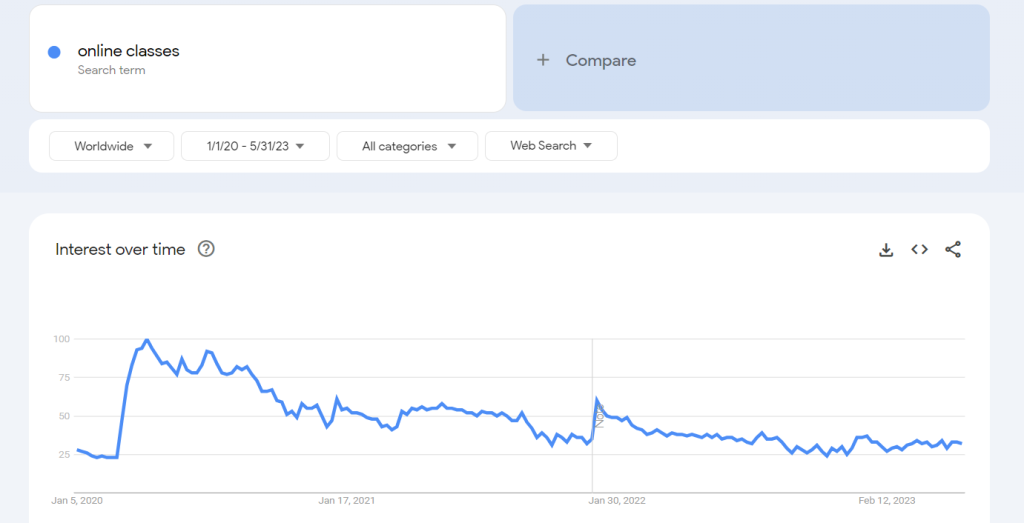
Historical data overview from Google Trends
Image: In this screenshot representing a time period from 2020-2023, we can see the spike corona effect in 2020 because that is a gradual drop in trend.
Industry Knowledge
Depending on your industry, you may already have a good grasp of which keywords are seasonal. For example, retailers know that keywords related to holiday shopping, such as “Christmas gifts,” are seasonal.
Data from Google Search console
Find out which keywords and pages you’re ranking for by using the Search Queries section of Google Search console or a tool such as SEMrush. Knowing which keywords you’re ranking best for can help you understand which keywords you need to analyze for seasonality. Consider particular keywords which are getting more clicks for that time period. Develop content based on those keywords and consider related search queries.
Geographical data
Based on region and country the seasonal keyword trends vary. Before we start with Season keyword strategy do an analysis based on region and countries. If there is no seasonal relevancy with that keyword in our region there is no point in working on that keyword.
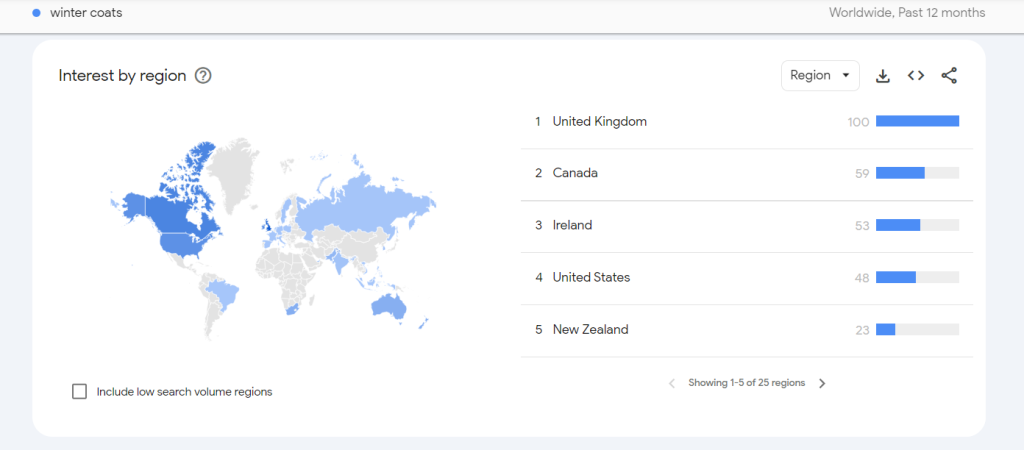
Geographical data Analysis from Google Trends
Leverage your Business with Best SEO Agency in Abu Dhabi
Consider Search Volume vs. Buyer Intent
While identifying seasonal keywords is essential, it’s equally crucial to consider buyer intent. Not all high-volume seasonal keywords will lead to conversions. Focus on keywords that not only experience a surge in search volume but also indicate strong buyer intent. Keywords like “buy winter coats online” are more likely to attract potential customers compared to generic terms like “winter coats.” Cost per click also helps us to get an idea about how much is bidding for this particular keyword. This will show how the ads are showing based on user intent keywords. Understanding buyer intent allows you to tailor your content and product offerings to meet the needs of your audience effectively.
| Keywords | Search volume | Cost per Click |
| winter coats | 1k-10k | $0.40 |
| buy winter coats online | 10-100 | $0.90 |

How we can create an Effective Content Strategy for your Seasonal Keywords
Content Calendar
Plan your content calendar around seasonal trends. When you are targeting a “Christman party”, 2023 needs to start working on this particular content from September. Schedule and create the content accordingly to check the possibility of creating a new landing page to target seasonal keywords. This strategic approach will gain more visibility to our website that particular time.
Seasonal Content
Create and optimize content that aligns with seasonal keywords. This can include blog posts, product listings, or landing pages. Ensure that your content provides value to your audience and addresses their seasonal needs or interests. We can also include related search queries and suggestions from Google.
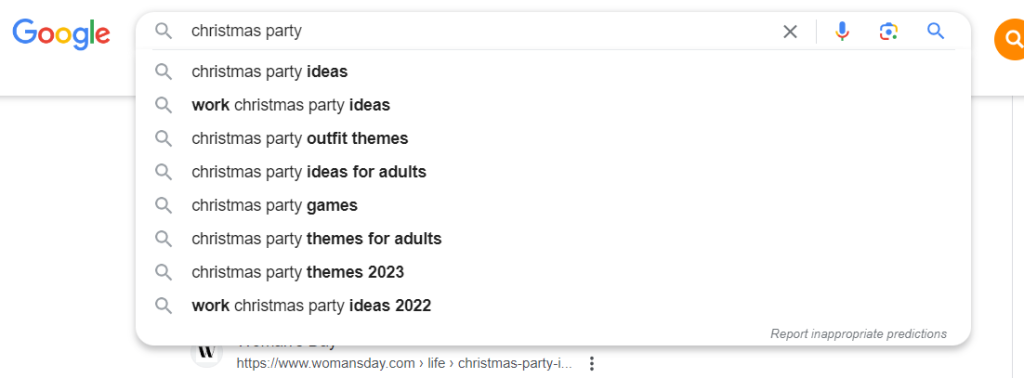

Seasonal Keyword suggestion from Google
Long tail seasonal Keyword
While creating the content focus on developing long tail seasonal keywords in that content. This drives more the attention of users searching for seasonal products. For example if someone is selling “halloween dresses “you might target long tail seasonal keywords like ” halloween dresses for ladies” this keyword will attract more potential customers.
Update Existing Content
Don’t forget to update existing content with relevant seasonal keywords. We have already written quality content about that season and it got much visibility in that time period. Work on updating that content in new search terms, change in year etc. This can help boost the visibility of older posts and drive more traffic during peak seasons.
Conclusion
Understanding Keyword seasonality can significantly impact your website’s SEO performance and organic traffic. By selecting the right keywords, understanding buyer intent, and creating targeted content, you can ensure that your website remains visible and relevant throughout the year. Keep an eye on trending topics and seasonal fluctuations in keyword demand to stay ahead of the competition and drive more organic traffic to your site.

